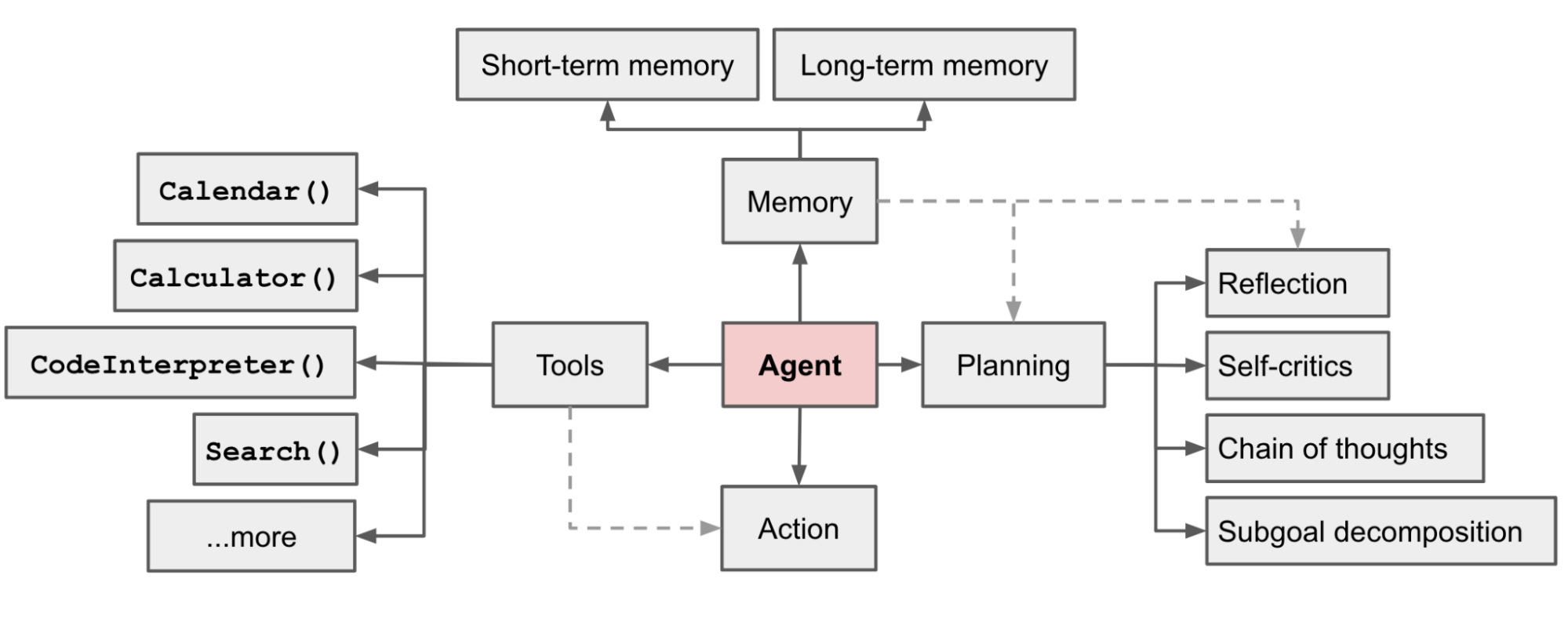LLM-based Agent System Architecture
(Redirected from LLM-based agent architecture)
Jump to navigation
Jump to search
An LLM-based Agent System Architecture is an LLM-based system architecture for an LLM-based agent system.
- Context:
- It can harness the capabilities of LLMs for goal-directed behavior.
- It can (typically) incorporate LLM-based Agent System Modules such as: LLM-based Agent Controller Module, LLM-based Agent Memory Module, LLM-based Agent Planning Module, LLM-based Agent Profile Module.
- It can impact Downstream Task System Performance.
- ...
- Example(s):
- The architecture in (Wang, Ma et al., 2023) with profile, memory, planning, and action modules.
- A Memory-enhanced reinforcement learning (MERL) architecture in (Shi et al., 2022) (for SayCan).
- An AutoGPT Architecture (Hou et al., 2023) with memory, planning, and feedback modules (for AutoGPT).
- ...
- Counter-Example(s):
- Heuristic-based Agent Architectures like those that use A*, STRIPS, SOAR.
- See: LLM-based agent system, AI agent architecture, Autonomous agent, Modular system architecture.
References
2023
- (Wang, Ma et al., 2023) ⇒ Lei Wang, Chen Ma, Xueyang Feng, ..., and Ji-Rong Wen. (2023). “A Survey on Large Language Model based Autonomous Agents.” In: arXiv preprint arXiv:2308.11432. doi:10.48550/arXiv.2308.11432
- QUOTE: ... To harness the full potential of LLMs, researchers have devised diverse agent architectures tailored to different applications. In this paper, we present a comprehensive survey of these studies, delivering a systematic review of the field of autonomous agents from a holistic perspective. More specifically, our focus lies in the construction of LLM-based agents, for which we propose a unified framework that encompasses a majority of the previous work. Additionally, we provide a summary of the various applications of LLM-based AI agents in the domains of social science, natural science, and engineering. Lastly, we discuss the commonly employed evaluation strategies for LLM-based AI agents. Based on the previous studies, we also present several challenges and future directions in this field. To keep track of this field and continuously update our survey, we maintain a repository for the related references at this https URL.
- SUMMARY: It presents a unified framework for LLM agent architecture with 4 modules: profile module, memory module, planning module, action module.

Figure 2: A unified framework for the architecture design of LLM-based autonomous AI agent.
2023
- https://lilianweng.github.io/posts/2023-06-23-agent/
- QUOTE: Building agents with LLM (large language model) as its core controller is a cool concept. Several proof-of-concepts demos, such as AutoGPT, GPT-Engineer and BabyAGI, serve as inspiring examples. The potentiality of LLM extends beyond generating well-written copies, stories, essays and programs; it can be framed as a powerful general problem solver.

Fig. 1. Overview of a LLM-powered autonomous agent system.
2023
- (Bornstein & Radovanovic, 2023) => Matt Bornstein, and Rajko Radovanovic. (2023). “Emerging Architectures for LLM Applications."
- QUOTE: ... a reference architecture for the emerging LLM app stack. It shows the most common systems, tools, and design patterns we’ve seen used by AI startups and sophisticated tech companies. ...
- Here’s our current view of the LLM app stack:
